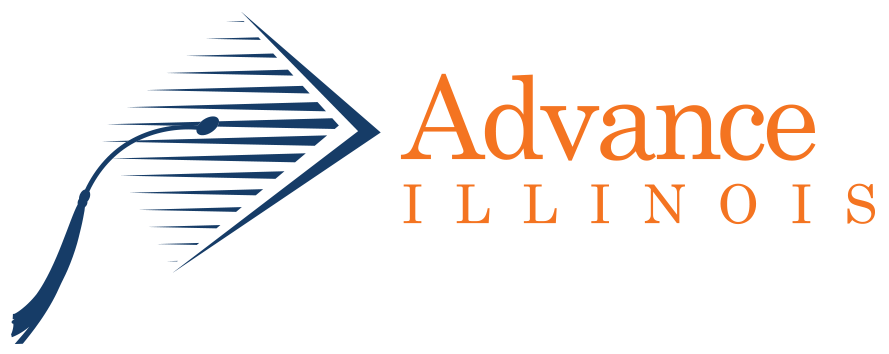Sandy Boyd, Chief Executive Officer & Co-founder of Seek Common Ground
MESSAGE FROM OUR CEO:
In August 2019, Seek Common Ground launched our inaugural Action Accelerator to test ideas, form a learning community, and create new knowledge on issues pertaining to Measurement, Assessment, and Accountability (MAA). State-based education advocacy organizations from Alabama, Arizona, California, Colorado, Georgia, Ohio, Illinois, Louisiana, Mississippi, Tennessee, and Washington ideated and executed projects ranging from conducting public opinion research on parent MAA demands and expectations to developing backgrounders on MAA policies for newly-elected state officials to hosting family events to deepen partnerships in communities systemically marginalized from public education. These 11 organizations took the charge, and opportunity, to form a learning community to heart, sharing ideas and strategies, directing one another to helpful resources, and, generally, elevating one another’s efforts. Aided by research and expertise from MAA-concerned allies and technical assistance from organizers and polling professionals, the learning community built a strong body of knowledge around MAA issues to share with one another and other advocates.
The foundation laid by this work: the successes, the lessons learned, and the ongoing need the work identified has grounded SCG’s continued evolution. We recognize that state and local coalitions know their context best: salient current and emerging issues; hopes, concerns, and priorities of families, students, and educators; who to engage; how to navigate competing demands; and how to organize. The experiment of launching this Action Accelerator also confirmed that the efforts of these grounded actors is, indeed, accelerated when they have entrée to resources—both financial and informational—they would not otherwise be able to access; and to the benefits of fellowship with peers who are grappling with similar issues. This MAA Phase I Action Accelerator set us on a path to continually refine, and learn from, our efforts to provide the resources, space, and opportunity for those most directly affected by issues to determine and work on solutions.
Learning Community
Alabama Grit (Supported by a+ Education Partners)
Alabama GRIT conducted a communications campaign to inform policy makers about the new Alabama Comprehensive Assessment Program and the benefits of setting a proficiency target for students on the assessment that would show they were on the path to being ready for college or career-track employment after high school.
EXPECT more ARiZONA
Expect More Arizona engaged direct stakeholders: caretakers, educators, and community leaders from 13 of Arizona’s 15 counties to share the Arizona Education Progress Meter, EMA’s tracker on eight P-20 indicators, to garner feedback, determine local concerns, and improve the design of the instrument to better inform communities on their students’ academic progress.
California Alliance for Continuous Improvement (A Californians Dedicated to Education Foundation Sponsored Project)
The California Alliance for Continuous Improvement launched a pilot project with San Juan Unified School District to analyze and comment on their experience with the state’s accountability instruments: California School Dashboard, Local Control Accountability Plan, and Local Control Funding Formula in order to share findings with other districts on how they could improve their experiences with these instruments, and share with the California Department of Education stakeholder feedback to improve the instruments.
CLIMB Higher COLORADO
Climb Higher Colorado conducted a public opinion research survey with parents across Colorado to ascertain their awareness and access to the state’s school and district performance information (SchoolView). CHC used the results of that survey to design an outreach process for districts to deploy to increase parent engagement; concluding efforts with a second poll to determine the efficacy of the effort.
Georgia Partnership for excellence in education
In order to compliment Georgia’s state participation on the ESSA Innovative Assessment Pilot, GPEE designed an Assessment Inventory protocol for school districts to deploy with staff to “assess” their assessment practices.
Advance Illinois
Advance Illinois held a pre-planning process to identify key stakeholders, partners, and the research base around defining the elements of a “trauma-responsive” school with the goal to include the provision of these services and practices as a requirement in the state’s accountability system.
COUNCIL FOR A BETTER Louisiana
The Council for a Better Louisiana developed a backgrounder on the policies and practices the state and school districts have maintained for the past two decades around assessment and accountability, sharing the primer with newly elected state legislators and Board of Elementary and Secondary Education members via the Louisiana Reset communications campaign.
Mississippi FIrst
Mississippi First researched best practices around the country on K-3 accountability practices, producing a set of recommendations for state education and policy leaders to consider around early grade assessment and accountability policies.
Ohio excels
Ohio Excels fielded a public opinion research survey to public school parents, oversampling Black and Brown parents, to surface their perspectives on assessments and accountability provisions, briefing the state legislature’s study group on assessment and accountability in addition to releasing the information to the general public.
TENnessee score
TN SCORE conducted a landscape analysis of state agencies’ various student data systems to produce a guide for legislators and policymakers for consideration in streamlining and consolidating information.
REAdy Washington
Ready WA partnered with the Seattle Somali Parents Board to conduct a series of listening and information sharing sessions to better understand this growing community’s concerns and expectations about learning standards, assessments, and education to career pathway planning.

















